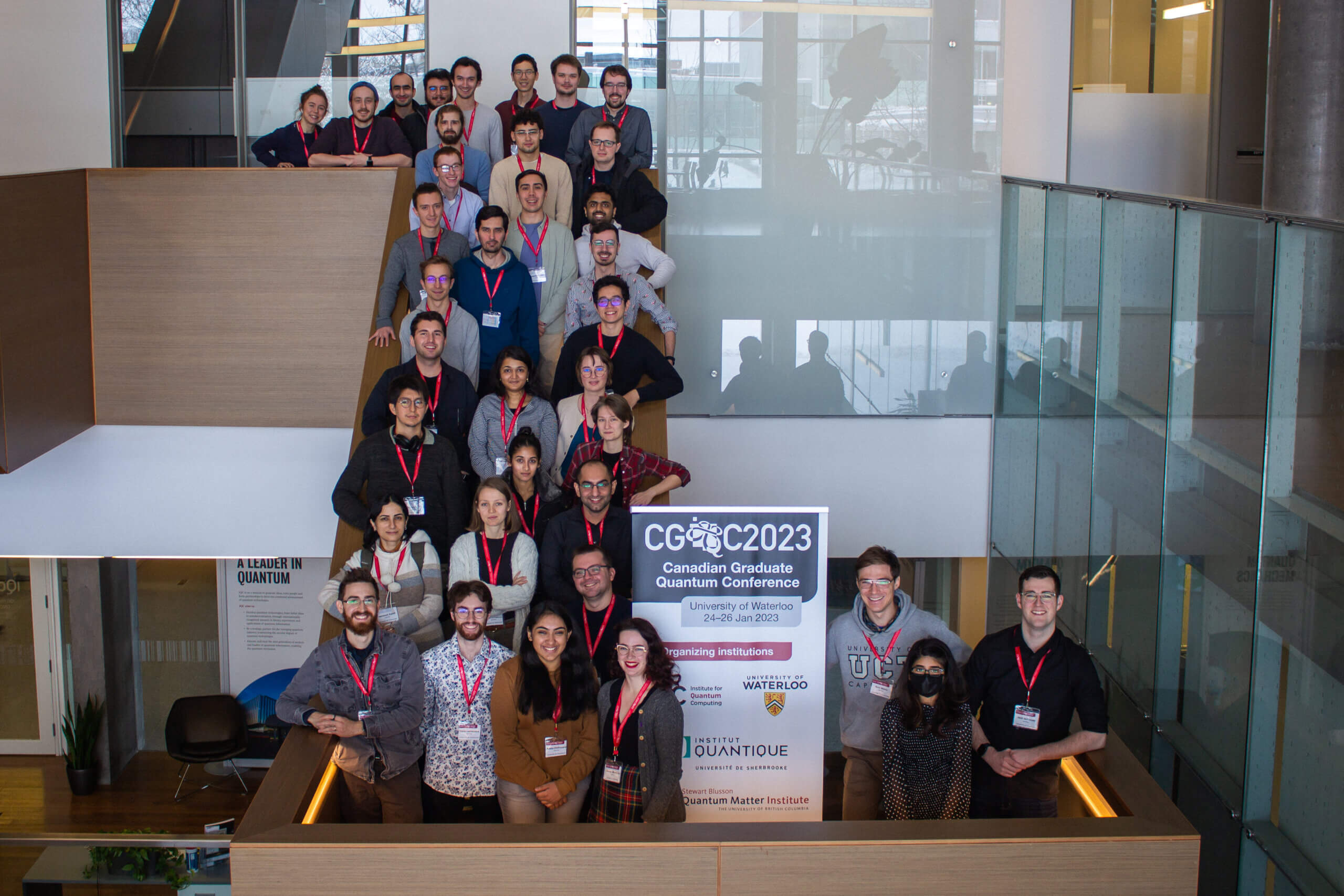The Canadian Graduate Quantum Conference (CGQC) included three days of academic keynote speakers, student presentations, lab tours, industry engagement and non-technical sessions to connect graduate students undertaking quantum research.
For the first time since the start of the COVID-19 pandemic, students across the country gathered at the Canadian Graduate Quantum Conference (CGQC). The conference connects graduate students involved in quantum technologies research, with primary focus areas in quantum information, computing, communication, sensing, and materials, across theory, experiment, and applications. “The conference brings together students from across Canada to collaborate, connect, and engage in meaningful conversations. The opportunity each student has to present their research and passions to their peers results in the cross-pollination of Canada’s research space,” says Jack deGooyer, MASc student at the University of Waterloo and conference lead.
This event is jointly organized and hosted on a rotating basis by the three CFREF-funded institutes across Canada that share common goals for strengthening connections and sharing ideas across the student community: the Stewart Blusson Quantum Matter Institute (University of British Columbia), Institut Quantique (Université de Sherbrooke), and Transformative Quantum Technologies (University of Waterloo). This rotation between the hosting institutions is a highlight of the conference that provides graduate students with a unique opportunity to explore the quantum research capabilities across Canada. “I particularly liked having the opportunity to visit the Waterloo campus and region – it was exciting to see what is happening at research centers across Canada,” said Marc-Antoine Roux, a conference attendee who travelled from the Université de Sherbrooke.
The conference included three days of academic keynote speakers, student presentations, lab tours, industry engagement and non-technical sessions. Keynote presentations by leading quantum researchers introduced students to innovations in quantum computing, quantum device control, and silicon quantum technologies. Roux especially appreciated how one of the speakers, Prof. Stephanie Simmons, provided a new perspective on the objective of quantum computing, allowing him to gain a unique insight into a prevalent research area in quantum technology advancements.
Participants themselves had the opportunity to present their work during presentation and poster sessions, which offered a chance for students to learn from each other: “Rafael Hanael from UBC gave an informative talk about twisted cuprate bilayers that helped me understand a lot more about superconducting physics and quantum information,” said Colin Epstein, a member of the planning team and attendee from the University of Waterloo, who further described how connecting with other graduate students will help advance his own research: “The conference is a unique and fun way to meet people you wouldn’t have had a chance to otherwise, over a large range of quantum-related research fields. People will be working on things you know, encouraging conversation between like-minded researchers. Alternatively, there is the opportunity to pick the brains of those working in specialties you are less familiar with, which can be beneficial in advancing your own research.”
Aside from research, participants were also able to connect with private sector leaders in this emerging industry, including Xanadu Quantum Technologies, NGen, Anyon Systems, and Agnostiq. Some of the main takeaways from these sessions included words of encouragement from these industry leaders to students in the field. John Dick, campus director of Velocity, encouraged graduate students to continue pursuing their passions, saying, “you have the opportunity to solve real problems – the passion that you have is what’s going to drive you.” Catherine Chambers, who gave a talk aimed at building an equitable, diverse, and inclusive society through scientific advancement, also added that “there is a need for innovation because, with new ideas, there are new opportunities for employment and entrepreneurship.”
More information on CGQC 2024 will be available soon.

